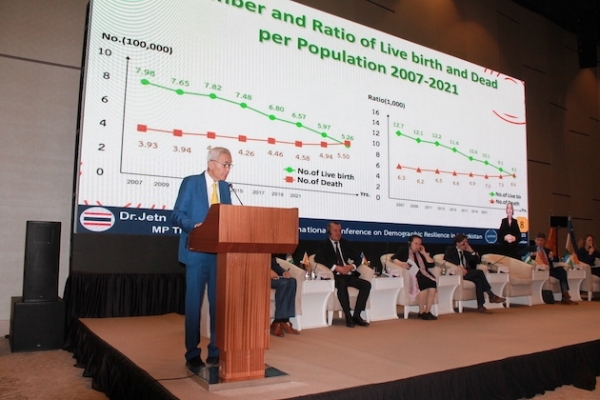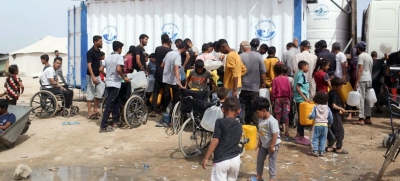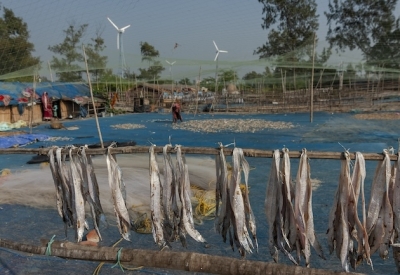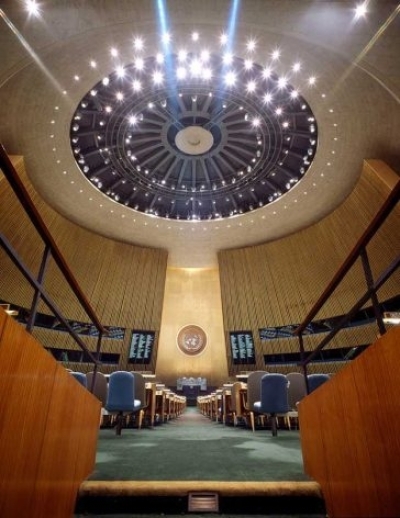JOHANNESBURG & TASHKENT, Dec 04 (IPS) — Lawmakers were reminded of the benefits of long-term planning and the benefits of evidence-based decision-making in policymaking while grappling with demographic trends, be they an aging population or one with significant growth in youth, like that of Uzbekistan.
The Chairperson of the Senate of the Oliy Majlis of the Republic of Uzbekistan outlined some of the key issues Uzbekistan faced, including improving and promoting programs for healthy living, creating inclusive and decent jobs, ensuring equal access to education for all, and continuing to reduce maternal and child mortality rates.
Legislators from Indonesia, Kyrgyzstan, Romania, Tajikistan, and Thailand attended the International Conference on Demographic Resilience in Uzbekistan with support from the Asian Forum of Parliamentarians on Population and Development (AFPPD). The discussions over the course of two days included discussions on demographic resilience, labor markets, education, and healthy aging.
“It is precisely through conferences such as this that AFPPD fosters dialogue and cooperation among legislators and provides a stage to bring together parliamentarians from across Asia, offering them an opportunity to collaborate and advocate for policies that promote sustainable development with emphasis on responsible and responsive demographic policies and a human rights-based approach to lawmaking,” Edcel C. Lagman, Acting Chairperson of the AFPPD, said in his opening address.
Lagman spoke of the significance of holding the conference in Uzbekistan.
“Central Asia is literally at the heart of the world. The Silk Road did not only aid in transporting goods and merchandise during ancient times; it was a key artery through which ideas and innovation flowed and reached far-flung corners of the world and thus influenced the rise and fall of empires and the growth of civilizations,” Lagman said.
“Central Asia is still one of the most multi-cultural regions worldwide, even as its current demographic profile is considered by the Eurasian Research Institute to be “very favorable for economic growth within the next three decades.” We all have much to learn from this diverse and dynamic region, particularly from our member nations, Kazakhstan, Kyrgyzstan, and Tajikistan.”
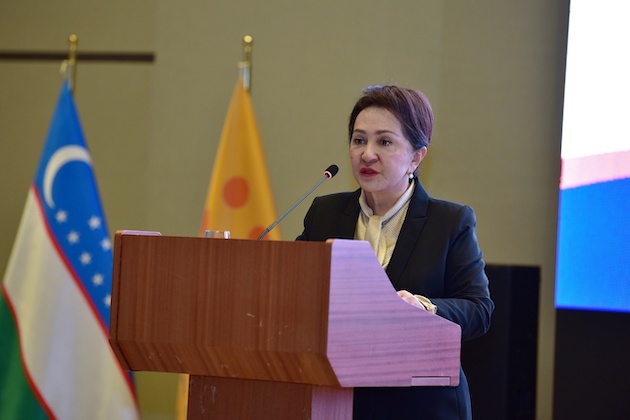
Zulaykho Makhkamova, Deputy Prime Minister of the Republic of Uzbekistan, expanded on a national programme running since 2022 on women’s empowerment, including offering economic, business, and job opportunities.
“We are reaching out to our girls in the remotest areas of Uzbekistan and offering them access to better education … to promote and encourage demographic resilience.”
Makhkamova told the conference that the country was also cooperating with the WHO and implementing best medical practices.
She stressed the importance of evidence-based planning, and with the UNFPA’s assistance, the country took a proactive stance.
“We know that our population is growing very quickly,” and therefore, social and economic indicators were crucial to understanding the dynamics of the country.
The country’s president had taken a clear stance on mother and child protection, gender equality support, and the expansion of economic opportunities for women, she noted.
Planning for healthy aging and a dignified death started before birth when parents planned their pregnancy and continued with proper care and nutrition in infancy, education and training in youth, quality work in adulthood, and care for the aging population, said Dr Jetn Sirathranont, member of the Senate of Thailand and AFPPD Secretary-General.
Dr Yongjie Yon, Technical Officer on Ageing and Health, WHO Regional Office for Europe, who moderated a session on the Decade of Healthy and Active Longevity in Uzbekistan, put it succinctly: “We are living longer than ever before. This is the cause for greater celebration and is a testament to our public health system.”
Elmira Basitkhanova, Deputy Minister of Health of the Republic of Uzbekistan, spoke about health initiatives in Uzbekistan, including conducting preventive medical examinations for 4.6 million people 55 years of age and older and promoting healthier lifestyles. This is just one of several interventions.
Delegates were reminded by Lisa Warth, Chief of the Population Unit, United Nations Economic Commission for Europe (UNECE), that “there are 11 million older people living in Uzbekistan today. In 2070, this will be 5 million more... And these are the very young youth students today that we’re investing in their education. So it’s really about starting to lay the foundation for their healthy aging.”
The key to this was health, but also a “crosscutting inter-departmental approach looking at education, employment, urban planning, intergenerational relations, and gender relations” when it comes to policymaking.
During their presentations, the representatives of Indonesia, Sri Wulan Jasmin, shared his country’s experience in addressing demographic resilience, and Surayyo Dustmurodzoda from Tajikistan shared their views on youth and labor policy, while both made specific recommendations for Uzbekistan.
“AFPPD will continue delegating members and contributing to similar regional and global events in the future with the platform provided for parliamentarians and policymakers to share knowledge, experiences, and best practices,” said Dr Usmonov Farrukh, interim Executive Director of AFPPD.
IPS UN Bureau Report

